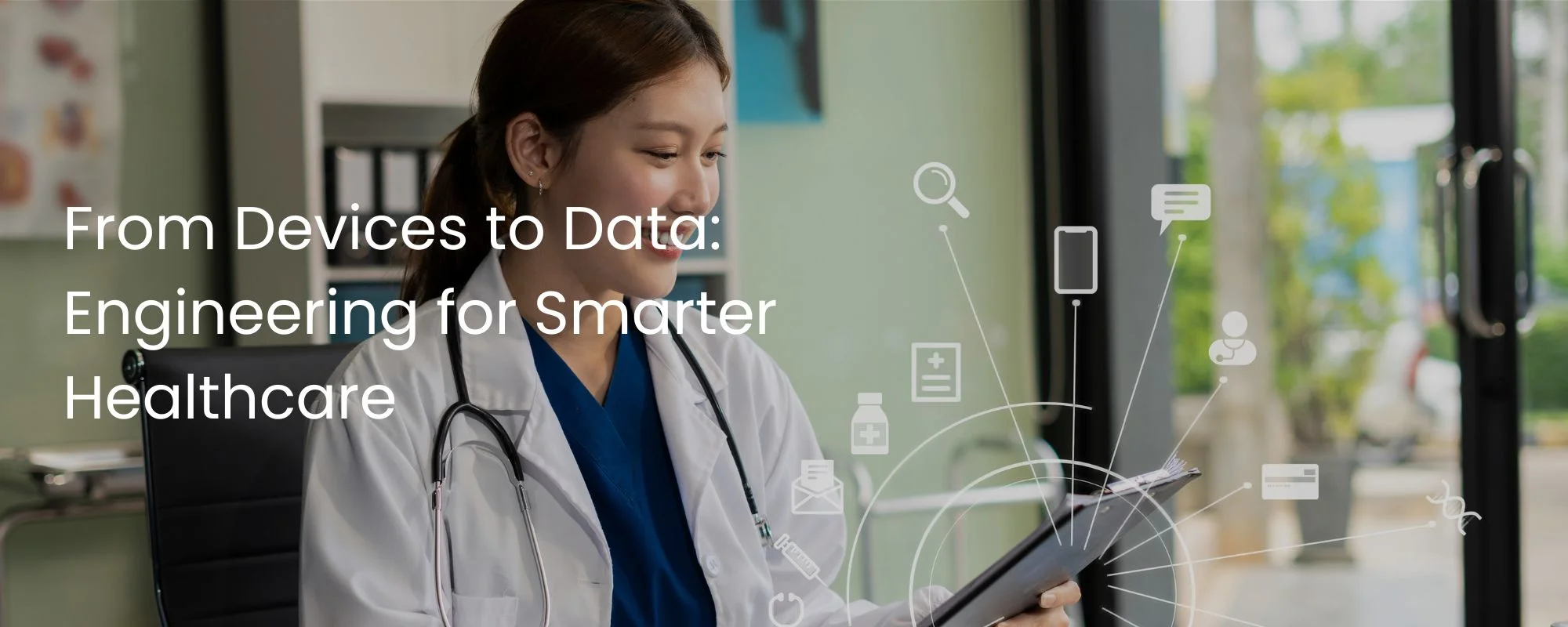
Healthcare is undergoing one of the most profound transformations in history, driven by the convergence of connected devices, artificial intelligence (AI), and secure data ecosystems. What was once a reactive and treatment-focused sector is now becoming predictive, personalized, and preventive. At the heart of this change lies the engineering that enables medical devices, sensors, and healthcare platforms to seamlessly generate, process, and act upon data.
The Shift Towards Connected Healthcare
Traditional healthcare relied heavily on physical consultations, periodic check-ups, and centralized hospital-based systems. While effective, this model was limited by accessibility, cost, and response times. The rise of connected medical devices from wearable heart monitors to IoT-enabled infusion pumps has opened new possibilities. These devices continuously capture vital signs, monitor chronic conditions, and transmit real-time data to healthcare providers.
This shift means patients no longer need to be confined to clinical settings for monitoring. Instead, care can extend into homes, workplaces, and even remote locations improving accessibility and patient outcomes.
Engineering the Bridge: From Devices to Data
Developing smarter healthcare solutions is not just about creating devices; it’s about engineering entire ecosystems that integrate hardware, software, connectivity, and analytics. Each layer plays a crucial role:
The Role of AI and Data Analytics
Once data reaches secure platforms, its real potential is unlocked through analytics. AI models can detect anomalies, predict health risks, and even recommend interventions. For example, a connected glucose monitor can not only track blood sugar levels but also analyze long-term patterns to predict hypoglycemic events before they occur.
This proactive approach transforms healthcare from being reactive to preventive. Hospitals and clinics benefit from reduced admissions, while patients enjoy higher quality of life.
Challenges in Smarter Healthcare Engineering
While opportunities are vast, engineering smarter healthcare comes with its set of challenges:
Spanidea’s Approach to Smarter Healthcare
At Spanidea, we understand that healthcare innovation is about more than just technology it’s about engineering with empathy, precision, and responsibility. Our expertise spans:
We partner with medtech companies, healthcare providers, and enterprises to create solutions that not only meet today’s demands but also anticipate the healthcare challenges of tomorrow.
The Road Ahead
The future of healthcare is one where devices and data seamlessly converge to deliver care that is accessible, personalized, and predictive. From wearable biosensors to AI-assisted diagnostics, engineering plays a central role in shaping this future.
As technology continues to evolve, one thing is clear the smarter the engineering, the smarter the healthcare. Organizations that embrace this transformation will not only improve patient outcomes but also redefine how healthcare is delivered across the globe.